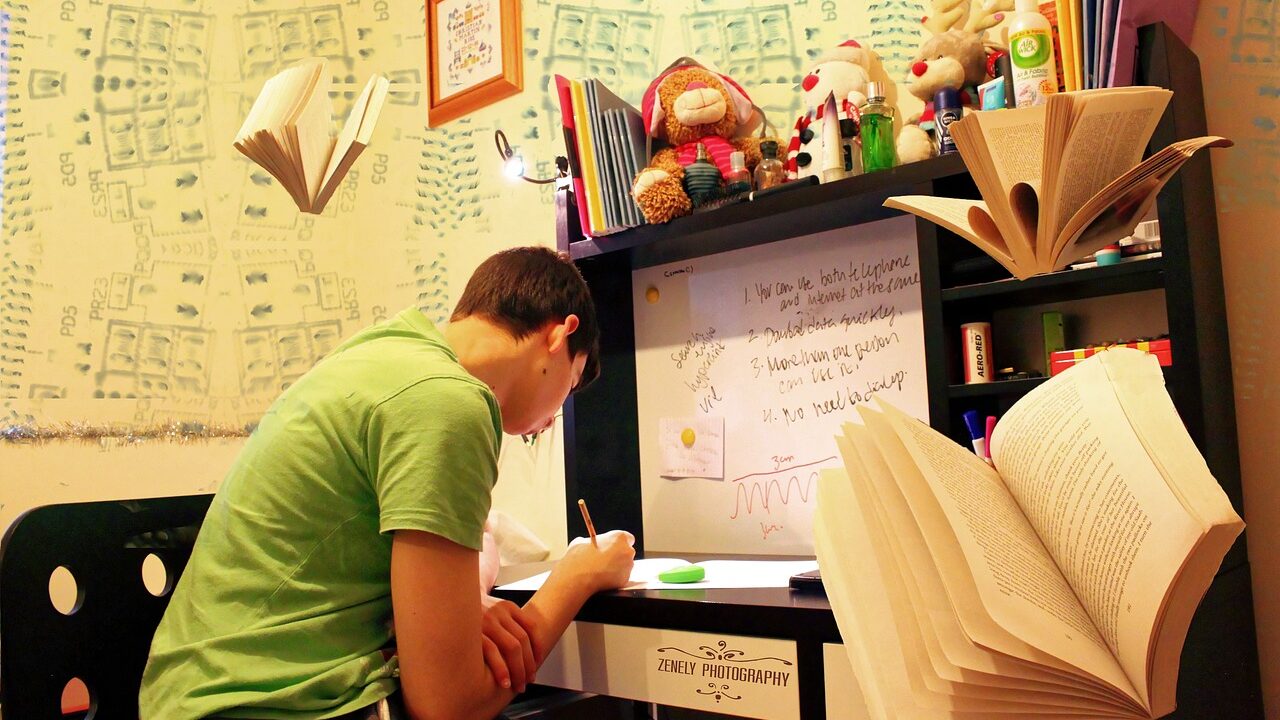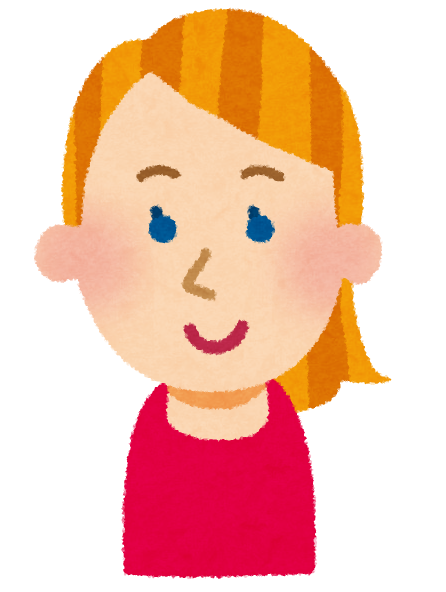ライフハックとしてではなく、英語学習にも極めて有用なのが、著名人が10分程度のプレゼンを行うTEDです。
TED Talksとは、あらゆる分野のエキスパートたちによるプレゼンテーションを無料で視聴できる動画配信サービスのことです。10年ほど前にサービスが開始されてから、政治、心理学、経済、日常生活などの幅広いコンテンツが視聴できることから人気を集めています。
RareJob English Lab
TEDは4000を超える膨大な数の動画があります。しかし慣れないうちは、動画の探し方や視聴のコツが分かりませんよね。この記事では、数多くのTEDを見てきた管理人(塩@saltandshio)が、心を揺さぶられたトークをあらすじと一緒にご紹介します。
ビジネス英会話を効率よく身につけたい方におすすめスクール
シェーン英会話
シェーンは1977年の創業以来、ネイティブ講師が英語を英語で教える「直接教授法」を採用しています。首都圏におけるスクール拠点数は、ネイティブ講師の英会話スクールでNo.1。駅から近いスクールが多いので通いやすく時間を有効に使えます。
スピークバディ パーソナルコーチング
1日1時間の短期集中トレーニングで、あなたの英語力向上をコーチが全力でサポートします。あなたの英語の世界が、劇的に変わります。
リディア・マホヴァ:新しい言語を学ぶ秘訣
新しい言語を学びたいけれど、気後れしたり、何から始めたらいいのかわからなくなったりしませんか? リディア・マホヴァによると、特別な才能や「言語に秀でた遺伝子」なんて要らないのだそうです。この前向きで背中を押してくれるようなトークで、彼女は複数の言語を操る「ポリグロット」たちの秘密を明かし、隠れた言語の才能を開花させるのに役立つ4つの原則と言語学習を楽しむ方法を教えてくれます(約10分半)。Lýdia Machová / The secrets of learning a new language.
[PR]無料体験レッスン実施中!全国208校、創業40年の老舗英会話スクール【シェーン英会話】多言語を話せる人はみんな楽しみながら覚えている
新学習指導要領の実施により、2020年度から小学校で英語教育が必修化されました。これにより、従来の小5・小6での外国語活動から、小3・小4での外国語活動、小5・小6での教科としての英語に変更になりました。
これまで小学校5年生からだった英語教育が、2020年には小学校3年生からスタートしました。小学校3年生、4年生は「外国語活動」という体験型の英語学習が年間35コマ設定されています。
引用:子ども英会話ペッピーキッズクラブ
小1でも音楽の授業に英語の歌を取り入れている学校もあります。義務教育だと小学校から中学校の9年間、高校で12年間、大学に行くとさらに合計16年間も英語を勉強しているのに、わたしたちは街で急に話しかけられても、旅行に行ってもほとんど英語を喋ることが出来ません。
しかし、世の中には多くの国の言葉を話せる人がたくさんいます。彼らと私たちの違いはなんなのでしょうか。リディア・マホヴァによれば、彼らが多くの外国語を習得しているのは、なにか特別な才能があるわけではないということです。
多くの言語を操る「ポリグロット」たちが集まるイベントで、リディア・マホヴァはどうやって彼らが多言語を覚えたのかリサーチしてみたところ、以下のような回答をもらいました。
- いくつかのフレーズを覚えたら、すぐにネイティブスピーカーに会って話す
- 発音の真似から入る
- 頻出の500語を必ず覚える
- 文法書を読む
このように、彼らが多言語を覚えた方法は様々です。多くの人に聞いてわかったことは、言語を習得するためのこれといった秘訣はないということでした。しかし、多くの人にインタビューしているうちにリディア・マホヴァはあることに気が付きます。
彼らの学習方法に耳を傾けるうちに、突然ピンと来ました。私たち全員には共通点がひとつあったんです。それは言語を学ぶ過程の楽しみ方を知っていること。
And as I was listening to these polyglots telling me about their methods, it suddenly dawned on me: the one thing we all have in common is that we simply found ways to enjoy the language-learning process.
では彼らはどうやって楽しみながら外国語を習得しているのでしょうか。そのコツを3つ紹介しましょう。
[PR]まずは無料カウンセリング”続けるため”の オンライン英語コーチ「スピークバディ パーソナルコーチング」覚えるコツ(1)プロセスを楽しむ
学校で学ぶ英語がなかなか身に付かないのは、そこに楽しむ要素が無いからです。授業で決められた言葉を機械的に覚えて、テストのためだけに勉強しているのでは、実生活で実際に必要になった時に咄嗟に言葉が出てこないのは当然かもしれません。
ポリグロットは皆、言語の学習についてさも楽しそうに語ります。顔を輝かせて、カラフルな文法の一覧表や、丁寧に手作りされたフラッシュカードや、アプリでの語彙の学習に関するデータを見せてくれます。外国語のレシピで料理することへの愛を語る人もいます。方法はバラバラですが、どれも必ず自分が楽しめるものにしてあるのです。
All of these polyglots were talking about language learning as if it was great fun. You should have seen their faces when they were showing me their colorful grammar charts and their carefully handmade flash cards, and their statistics about learning vocabulary using apps, or even how they love to cook based on recipes in a foreign language. All of them use different methods, but they always make sure it’s something that they personally enjoy.
そう話すリディア・マホヴァ自身も、じつは外国語を勉強することにうんざりしていた時期がありました。その状況を打破するために、彼女はハリー・ポッターのスペイン語訳を読み始めたのです。ドイツ語の時は、アメリカの人気ドラマ『フレンズ』をドイツ語版で見ました。
わたしたちも馴染みのある作品で英語に触れたら、苦手に思っている言語でも自然に覚えられそうですね。
- ワンピース コレクション1 ONE PIECE 北米版DVD 1〜26話収録
- 鬼滅の刃 竈門炭治郎 立志編 1 BD 01-13話 325分収録 北米版
- となりのトトロ 劇場版 DVD 88分収録 北米版
リディア・マホヴァは「私たちは天才でもないし、言語習得の近道も知りません」と言います。しかし、彼女も含めて多言語を覚えている人たちは、プロセスを楽しむ方法を見つけて、毎日やりたくなる楽しい活動にしているだけなのです。
[PR]しちだの魔法ペンなら35日でバイリンガルに!楽天4部門1位の英会話!<七田式>覚えるコツ(2)反復練習を行う
しかし、楽しむだけだと言語を覚えるにはまだ不十分です。外国語を流暢に話せるようになりたいなら、反復練習を行う必要があります。学校で覚える英語が物語っているように、試験のために覚える単語は、脳の短期記憶に記録されるため数日後には忘れてしまうからです。
長期的に単語を記憶しておきたければ、数日ごとに繰り返し復習をしなければなりません。これは間隔反復と呼ばれます。
If you, however, want to keep words long term, you need to revise them in the course of a few days repeatedly using the so-called space repetition.
ノートに書き出すという昔からの手法もありますし、いまならスマートフォンのアプリを活用しするのも可能です。そしてありがたいことに、YouTubeでも数多く紹介されているので、自分に合った方法で反復練習を行うと良いでしょう。
[PR]知って得する、知らないと損をする!すぐに役立つ相手に合った「伝え方」のコツ!覚えるコツ(3)学ぶためのルールを作る
語学を習得するためには、そもそも覚えるための時間が必要になります。人によっては、すぐに「時間がない」と嘆く人もいますが、そんな人ほどスマートフォンでゲームをしているものです。本気で新しい言語を覚えたいのであれば、ながら時間を言語習得のための時間に置き換えてみましょう。
- いつもより15分早く起きて単語を覚える
- 通勤の時に覚えたい言語のPodcastを聞く
- 覚えたい言語の吹き替え版をテレビやYouTubeで見る
気持ちを切り替えれば、時間は生み出せます。
特別に時間を割かなくてもできることはたくさんあります。ポッドキャストを聞くのは、通勤中や家事をしながらもできます。大切なのは学習に計画を組み込むことです。
There are so many things we can do without even planning that extra time, such as listening to podcasts on our way to work or doing our household chores. The important thing is to create a plan in the learning.
出来ない言い訳を作ることは簡単です。それなら、出来る言い訳を作ることも簡単なのではないでしょうか。
[PR]検定試験合格者累計140万人!スマホ対応☆国家資格ほか資格取得ならSMART合格対策講座まとめ:流暢に話したいなら辛抱も必要
新しいことが身につくには、それなりに時間を必要とします。これは、語学に限った話ではなく、三日坊主という言葉があるように、やる気があっても気力が延々と続くわけではないからです。
2か月で言語を習得することはできませんが、目に見える進歩を遂げることは確実にできます。楽しめる方法で、毎日少しずつ取り組めばいいのです。成功体験ほどやる気の出るものはありません。
It’s not possible to learn a language within two months, but it’s definitely possible to make a visible improvement in two months, if you learn in small chunks every day in a way that you enjoy. And there is nothing that motivates us more than our own success.
そうはいっても、多言語を習得したポリグロットには特別な才能があると思う人もいるでしょう。しかし、ポリグロットのなかには少なからず長く外国語を習得できずにいた人がいます。
ですが、彼らはあるときに楽しく学べる方法を見つけ出し、そこから大きく伸び始めたのです。語学の習得に10年20年と苦しんだ人が、突然積極的に楽しめる教材や自分にとって効果的な方法を見つけ出して覚えだすのです。
もし、言語を学ぼうとして難しすぎるとか才能がないんだと思って諦めたことがあるなら、もう一度試してみてください。もしかしたら流暢に話せるまでに足りないのは、楽しめる方法なのかもしれません。
So if you’ve also tried to learn a language and you gave up,
thinking it’s too difficult or you don’t have the language talent, give it another try. Maybe you’re also just one enjoyable method away from learning that language fluently.
あなたが学ぼうとしているところに、楽しみはありますか?学びのなかに楽しみを見つけ出すことが出来れば、きっと大きく飛躍することでしょう。
英語全文
I love learning foreign languages.
In fact, I love it so much that I like to learn a new language every two years, currently working on my eighth one. When people find that out about me, they always ask me, “How do you do that? What’s your secret?” And to be honest, for many years, my answer would be, “I don’t know. I simply love learning languages.” But people were never happy with that answer.
<全文を読む>▼クリック▼
The best place to meet a lot of polyglots is an event where hundreds of language lovers meet in one place to practice their languages. There are several such polyglot events organized all around the world, and so I decided to go there and ask polyglots about the methods that they use.
And so I met Benny from Ireland, who told me that his method is to start speaking from day one. He learns a few phrases from a travel phrasebook and goes to meet native speakers and starts having conversations with them right away. He doesn’t mind making even 200 mistakes a day, because that’s how he learns, based on the feedback. And the best thing is, he doesn’t even need to travel a lot today, because you can easily have conversations with native speakers from the comfort of your living room, using websites.
I also met Lucas from Brazil who had a really interesting method to learn Russian. He simply added a hundred random Russian speakers on Skype as friends, and then he opened a chat window with one of them and wrote “Hi” in Russian. And the person replied, “Hi, how are you?” Lucas copied this and put it into a text window with another person, and the person replied, “I’m fine, thank you, and how are you?” Lucas copied this back to the first person, and in this way, he had two strangers have a conversation with each other without knowing about it.
And soon he would start typing himself, because he had so many of these conversations that he figured out how the Russian conversation usually starts. What an ingenious method, right?
And then I met polyglots who always start by imitating sounds of the language, and others who always learn the 500 most frequent words of the language, and yet others who always start by reading about the grammar. If I asked a hundred different polyglots, I heard a hundred different approaches to learning languages. Everybody seems to have a unique way they learn a language, and yet we all come to the same result of speaking several languages fluently.
And as I was listening to these polyglots telling me about their methods, it suddenly dawned on me: the one thing we all have in common is that we simply found ways to enjoy the language-learning process. All of these polyglots were talking about language learning as if it was great fun. You should have seen their faces when they were showing me their colorful grammar charts and their carefully handmade flash cards, and their statistics about learning vocabulary using apps, or even how they love to cook based on recipes in a foreign language. All of them use different methods, but they always make sure it’s something that they personally enjoy.
I realized that this is actually how I learn languages myself. When I was learning Spanish, I was bored with the text in the textbook. I mean, who wants to read about Jose asking about the directions to the train station. Right? I wanted to read “Harry Potter” instead, because that was my favorite book as a child, and I have read it many times. So I got the Spanish translation of “Harry Potter” and started reading, and sure enough, I didn’t understand almost anything at the beginning, but I kept on reading because I loved the book, and by the end of the book, I was able to follow it almost without any problems. And the same thing happened when I was learning German. I decided to watch “Friends,” my favorite sitcom, in German, and again, at the beginning it was all just gibberish. I didn’t know where one word finished and another one started, but I kept on watching every day because it’s “Friends.” I can watch it in any language. I love it so much. And after the second or third season, seriously, the dialogue started to make sense.
I only realized this after meeting other polyglots. We are no geniuses and we have no shortcut to learning languages. We simply found ways how to enjoy the process, how to turn language learning from a boring school subject into a pleasant activity which you don’t mind doing every day. If you don’t like writing words down on paper, you can always type them in an app. If you don’t like listening to boring textbook material, find interesting content on YouTube or in podcasts for any language. If you’re a more introverted person and you can’t imagine speaking to native speakers right away, you can apply the method of self-talk. You can talk to yourself in the comfort of your room, describing your plans for the weekend, how your day has been, or even take a random picture from your phone and describe the picture to your imaginary friend. This is how polyglots learn languages, and the best news is, it’s available to anyone who is willing to take the learning into their own hands.
So meeting other polyglots helped me realize that it is really crucial to find enjoyment in the process of learning languages, but also that joy in itself is not enough. If you want to achieve fluency in a foreign language, you’ll also need to apply three more principles.
First of all, you’ll need effective methods. If you try to memorize a list of words for a test tomorrow, the words will be stored in your short-term memory and you’ll forget them after a few days. If you, however, want to keep words long term, you need to revise them in the course of a few days repeatedly using the so-called space repetition. You can use apps which are based on this system such as Anki or Memrise, or you can write lists of word in a notebook using the Goldlist method, which is also very popular with many polyglots. If you’re not sure which methods are effective and what is available out there, just check out polyglots’ YouTube channels and websites and get inspiration from them. If it works for them, it will most probably work for you too.
The third principle to follow is to create a system in your learning. We’re all very busy and no one really has time to learn a language today. But we can create that time if we just plan a bit ahead. Can you wake up 15 minutes earlier than you normally do? That would be the perfect time to revise some vocabulary. Can you listen to a podcast on your way to work while driving? Well, that would be great to get some listening experience. There are so many things we can do without even planning that extra time, such as listening to podcasts on our way to work or doing our household chores. The important thing is to create a plan in the learning. “I will practice speaking every Tuesday and Thursday with a friend for 20 minutes. I will listen to a YouTube video while having breakfast.” If you create a system in your learning, you don’t need to find that extra time, because it will become a part of your everyday life.
And finally, if you want to learn a language fluently, you need also a bit of patience. It’s not possible to learn a language within two months, but it’s definitely possible to make a visible improvement in two months, if you learn in small chunks every day in a way that you enjoy. And there is nothing that motivates us more than our own success.
I vividly remember the moment when I understood the first joke in German when watching “Friends.” I was so happy and motivated that I just kept on watching that day two more episodes, and as I kept watching, I had more and more of those moments of understanding, these little victories, and step by step, I got to a level where I could use the language freely and fluently to express anything. This is a wonderful feeling. I can’t get enough of that feeling, and that’s why I learn a language every two years.
So this is the whole polyglot secret. Find effective methods which you can use systematically over the period of some time in a way which you enjoy, and this is how polyglots learn languages within months, not years.
Now, some of you may be thinking, “That’s all very nice to enjoy language learning, but isn’t the real secret that you polyglots are just super talented and most of us aren’t?”
Well, there’s one thing I haven’t told you about Benny and Lucas. Benny had 11 years of Irish Gaelic and five years of German at school. He couldn’t speak them at all when graduating. Up to the age of 21, he thought he didn’t have the language gene and he could not speak another language. Then he started to look for his way of learning languages, which was speaking to native speakers and getting feedback from them, and today Benny can easily have a conversation in 10 languages. Lucas tried to learn English at school for 10 years. He was one of the worst students in class. His friends even made fun of him and gave him a Russian textbook as a joke because they thought he would never learn that language, or any language. And then Lucas started to experiment with methods, looking for his own way to learn, for example, by having Skype chat conversations with strangers. And after just 10 years, Lucas is able to speak 11 languages fluently.
Does that sound like a miracle? Well, I see such miracles every single day. As a language mentor, I help people learn languages by themselves, and I see this every day. People struggle with language learning for five, 10, even 20 years, and then they suddenly take their learning into their own hands, start using materials which they enjoy, more effective methods, or they start tracking their learning so that they can appreciate their own progress, and that’s when suddenly they magically find the language talent that they were missing all their lives.
So if you’ve also tried to learn a language and you gave up, thinking it’s too difficult or you don’t have the language talent, give it another try. Maybe you’re also just one enjoyable method away from learning that language fluently. Maybe you’re just one method away from becoming a polyglot.
Thank you.
<閉じる>
\ ほかにも気になるトークが満載! /








